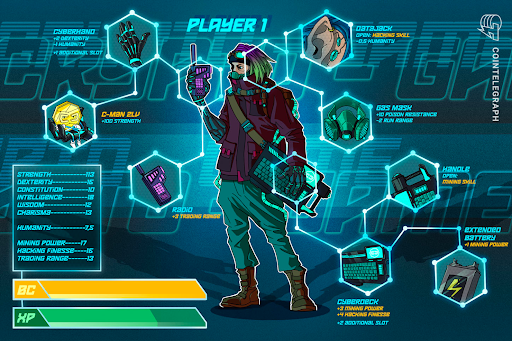The gaming industry is undergoing a metamorphosis fueled by the revolutionary potential of blockchain technology. Blockchain game development is no longer a futuristic vision; it’s here, reshaping the way we play. This innovative approach empowers players with true ownership of in-game assets, fosters engaging play-to-earn mechanics, and ushers in a new era of transparency and security within gaming ecosystems. But before embarking on this exciting new frontier, it’s crucial to demystify the costs and benefits associated with blockchain game development.
Understanding the Investment: Exploring Development Costs
Unlike traditional console game development, where costs are often more predictable, blockchain game development introduces unique cost considerations. While a definitive price tag is hard to pin down, several factors significantly influence the overall budget:
- Game Scope and Complexity: Simple mobile games with basic mechanics can be developed for considerably less compared to sprawling open-world RPGs with intricate economies.
- Team Expertise: Hiring seasoned developers with a blend of blockchain and traditional game development knowledge comes at a premium. However, their expertise can translate to faster development times and a more robust final product.
- Blockchain Platform Selection: Different blockchain platforms, like Ethereum or Solana, have varying fee structures, functionalities, and network scalability. Choosing the right platform can optimize development costs and ensure a smooth player experience.
- Smart Contract Development: The complexity of your game’s smart contracts, which govern the in-game economy and NFT ownership, significantly impacts development time and cost. The more features and functionalities embedded within the smart contracts, the higher the development cost.
- Art and Design Assets: Creating visually stunning characters, environments, and user interfaces requires skilled artists and designers. The overall scale and quality of these assets will inevitably influence the development budget.
Fact: While the cost of blockchain game development can vary significantly, a ballpark estimate for a basic, functional game might range from $50,000 to $150,000. However, more complex games with intricate economies and high-quality visuals could easily surpass that range.
Breaking Down the Cost Spectrum: A Deeper Look
To gain a clearer picture of where your budget might be allocated, let’s explore some key cost components involved in blockchain game development:
- Blockchain Development: This encompasses the creation, testing, and deployment of smart contracts, integrating the game with the chosen blockchain network, and ongoing maintenance to ensure security and functionality.
- Game Development: These are the traditional game development aspects you’d expect, like programming, level design, user interface creation, and gameplay mechanics.
- Art and Design: Creating high-quality visuals, animations, and user interfaces requires skilled artists and designers. The aesthetic appeal of your game plays a significant role in player engagement.
- Marketing and Community Building: Generating awareness and attracting a dedicated player base is crucial for the success of any game. This involves creating marketing campaigns, building a strong online presence, and fostering a thriving community around your game.
By carefully evaluating these factors and meticulously planning your development strategy, you can create a realistic budget for your blockchain game development project.
Unlocking the Potential: The Benefits of Blockchain Game Development
While the initial investment might appear substantial, the potential benefits of blockchain game development are significant and far-reaching:
- Enhanced Player Engagement: By fostering play-to-earn mechanics and true ownership of in-game assets like characters and items (represented as NFTs), blockchain games incentivize players and create a more engaged community. Players are no longer just playing; they are actively contributing to the game’s economy and value.
- Increased Transparency and Security: The inherent nature of blockchain technology ensures secure transactions, verifiable ownership of digital assets, and a more transparent game economy. Players can be confident that their in-game assets are secure and that the game operates fairly.
- New Revenue Streams: Blockchain technology opens doors to exciting new monetization possibilities. NFT marketplaces allow players to trade their in-game assets, while robust in-game economies can generate revenue through various means, like virtual goods or cosmetic items.
- Disruptive Potential: Blockchain game development holds the power to reshape the gaming industry by empowering players, decentralizing game development and ownership, and creating a more open and equitable gaming environment.
Making an Informed Decision: Is Blockchain Game Development Right for You?
The decision to embark on blockchain game development requires careful consideration. Here are some crucial questions to ask yourself:
- Do you have a compelling game concept that inherently benefits from the integration of blockchain technology? Not every game concept needs blockchain.
- **Are you prepared to invest the substantial time and resources necessary for development? Blockchain development typically involves a longer development cycle compared to traditional
console games due to the integration of novel technologies.**
- Do you have a team with the necessary expertise in both blockchain development and traditional game development? Building a successful blockchain game requires a unique blend of skillsets.
If the answer to these questions leans towards a yes, then blockchain game development might be the perfect path to create a groundbreaking and engaging gaming experience.
Conclusion: Building the Future, One Block at a Time
Blockchain game development is still in its early stages, but it represents a future where players have more control over their in-game experiences, game economies are built on transparency and fairness, and innovation thrives. By understanding the costs and benefits involved, you can make informed decisions about your next gaming project. Whether you’re a seasoned game developer seeking to push boundaries or a curious entrepreneur eager to explore the potential of blockchain technology, blockchain game development presents a unique opportunity to be part of shaping the future of gaming. So, are you ready to take the plunge and build the next generation of groundbreaking blockchain-powered games? The future of gaming awaits!


